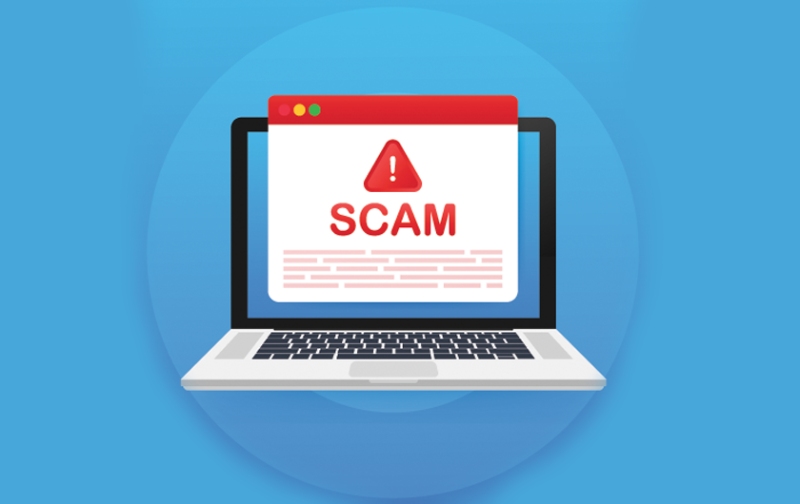In Delhi-NCR, there has been a peculiar case of con artists preying on those who post advertisements in local colonies about their missing children or other family members.
After her daughter, 17, went missing, Babita (name changed), a resident of north-western Delhi's Rohini neighbourhood, was in disbelief. In this regard, she reported a missing person to the police.
The next day after filing the complaint, she got a call from an unidentified number. The caller on the other end told her that he had located the missing girl and requested that she transfer Rs 5,000—or the cost of travel—to his Paytm account.
The expected payment was made by the family, but the daughter who went missing never showed up. They discovered that they were being held captive by a group that frequently preys on desperate individuals seeking assistance.

Similar to this, in OLX or QR code-related scams, the con artist approaches the individual seeking to sell a commodity on websites or apps like OLX, Quikr, and so forth, and agrees to pay the price requested for the said good while pretending as an Army or Paramilitary officer.
The scammer says that because he is stationed in a remote section of the nation, he is unable to accept the delivery in person or make a cash payment. As a result, he must send the money online.
After reaching an agreement, he sends the seller a phoney screenshot that appears to show that the agreed-upon sum has been sent to the seller's PayTM account (created using the PayTM Spoof App or other similar apps).
However, when the seller asserts that the payment has not been received, the fraudster makes an excuse about a technical problem before sending the victim a QR code.
He walks the victim through each step and forces them to use Google Pay to upload the relevant screenshot. The money is debited from the victim's account as soon as the victim uploads the screenshot and enters the UPI pin on Google Pay; it is not credited.
It goes further than this. When the victim brings this up with the fraudster, the latter claims that this was an error and that he is now sending a QR code for twice the amount (to make up for the money that was unintentionally debited from the victim's account), and as soon as the victim scans the QR code, the amount is once more debited from his/her account.
The fraudster engages the victim in this practice as many times as possible before disconnecting.
As a result, the victim who was trying to sell a goods on OLX, Quikr, etc., lost several thousand or even lakhs of rupees.
How to identify if a other party is is fake?
- When they pretend to have transferred you money via Google-Pe, Phone-Pe, etc., but the money is really taken from your account.
- They requests that you ship the item before they pay for it or offers phony payment documentation.
- They will request the item without first checking it and will deceive by giving fake payment confirmations, messages, etc.
- Demand non-cash payment methods: Usually, the person is adamant about utilizing a cheque. Note that banks are not liable if note cheques bounce.
- They request personal data such as your ID, bank account information, email address, and debit or credit card number.
How to avoid getting scammed?
1. Verify details of buyer/seller before proceeding to payment.
2. Any individual showing urgency or not waiting for a reasonable amount of time is likely to be a scammer.
3. You should never scan a QR code, share an OTP, or visit a link given by anyone on the internet.
4. Your One Time Password (OTP), UPI pin, and other secret information should not be shared on WhatsApp. Never provide banking information if anyone asks you to and always contact your bank. There is a possibility of fraud here.
5. It is recommended that digital escrow platforms be used for payment. When making an online payment with Escrow, you do not share your financial information with anyone. There is a platform for escrow called Vouch.
Digital Escrow Service In India.
Digital escrow services are offered by many companies in India. Among the most trusted is Vouch.
Vouch’s Digital Escrow service is a transparent way for buyers and sellers to build trust and secure a clean transfer of product and payment. Sellers can feel assured that they will be fairly compensated promptly, and buyers will feel confident that their order will be delivered as expected and on schedule. Vouch Digital Escrow keeps you updated and informed at every step of the transaction process till the end. Vouch’s professionals are always available to assist you with all queries that you may have during the entire transaction process.
There is no scope for deceit or fraud since the payments, shipping, delivery, and execution are carried out under the honest and watchful eyes of the Vouch’s professionals. With Vouch, any business transaction becomes transparent, uncomplicated, and hassle-free.
Check back here to learn more about Escrow and how to protect yourself from fraud.
----------------------------------------------------------------------------------
Safety is not just about protecting your credit, debit card number, and UPI accounts. It's about having control of your money till you've received the product or service you bought online!
As you're now aware of the importance of online safety, let's get your transactions secure on Vouch. It's just a click away.






